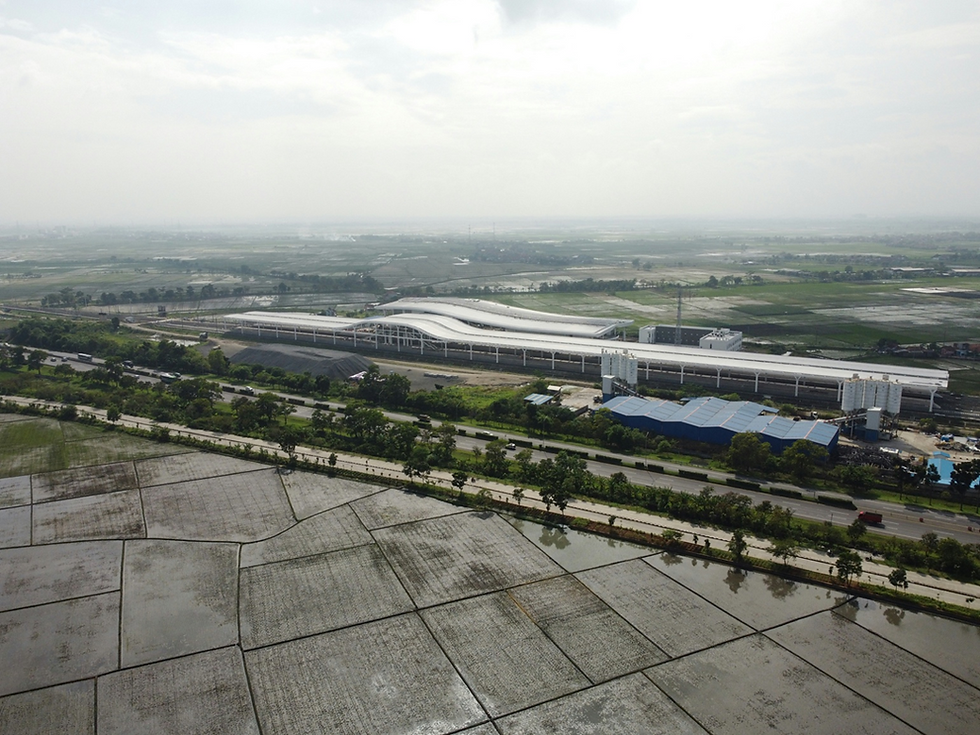Our Economies Depend on Nature: Be Nature Smart
- Sep 25, 2025
- 3 min read

A new study shows that over 72% of euro area companies and $3.76 trillion in loans rely on critical ecosystem services. As ecosystems degrade and climate hazards intensify, businesses face growing disruption, threatening financial and economic stability. These risks extend globally through supply chains, with some developing regions experiencing climate impacts up to 18 times higher than the world average. To respond, banks and businesses must integrate nature-related risks into their strategies, invest in ecological restoration, and align growth with sustainability.
Record Ocean Heat Signals Bigger Risks
In August, parts of the North Pacific and North Atlantic reached record-high sea surface temperatures, despite the global monthly average was “only” the third hottest on record. The rise in ocean heat matters: every degree Celsius of warmer air holds about 7% more water, fueling heavier evaporation and making severe floods and storms more likely. These extreme marine temperatures follow 2023 and 2024—the hottest years ever recorded worldwide—and reflect a broader pattern of accelerating climate change.
Why This Matters?
It is not just about hotter days or heavier rainfall. There are deeper economic risks at play. A recent study found that European banks and the companies they finance rely heavily on healthy ecosystems for resources and protection from climate hazards. When ecosystems weaken—through biodiversity loss, water shortages, or degraded flood defenses—financial institutions face rising risks, especially as climate change intensifies.
The Two-Way Link: Ecosystems and Economy
Ecosystems support the economy by providing raw materials, clean water, flood protection, and habitats essential for food production and manufacturing. The study showed that more than 72% of euro area companies depend on at least one vital ecosystem service.
But on the other hand, the economic system harms ecosystems in return. Corporate activities damages nature, creating risks driven by biodiversity loss and degradation of ecosystem services. These activities are highly concentrated: just 100 banks, out of 2,500 studied, are behind 87% of the biodiversity footprint from lending.
How Ecosystem Damage Hits the Economy?
Climate change and ecosystem degradation threaten companies' ability to operate, which in turn undermines their capacity to repay loans, placing banks and economies at risk. In fact, 75% of euro area corporate loans (over €3.2 trillion, or $3.76 trillion) are highly dependent on at least one ecosystem service. This risk is especially pronounced in sectors like agriculture, forestry, fisheries, construction, energy, and manufacture.
European financial activities also extend their environmental impact far beyond the continent, through global supply chains reaching Asia and Africa. The risks are not evenly distributed. Developing regions, such as small island nations and parts of Africa and the Middle East, can face up to 18 times higher physical climate risk than the global average. Meanwhile, more than 60% of euro area bank loans support businesses in areas lacking adequate flood protection, and over 40% finance firms facing drought and water scarcity.
What Should Be Done?
The evidence is clear: accelerating climate change and ecosystem degradation are not abstract threats, they are disrupting the economy today. Banks and businesses must integrate climate and nature-related risks into their strategies and prepare for both near-term disruptions and long-term transitions toward sustainability. This means investing in ecological restoration, updating risk models to reflect climate and nature dependencies, and supporting policies that align economic growth with the health of ecosystems.





Comments